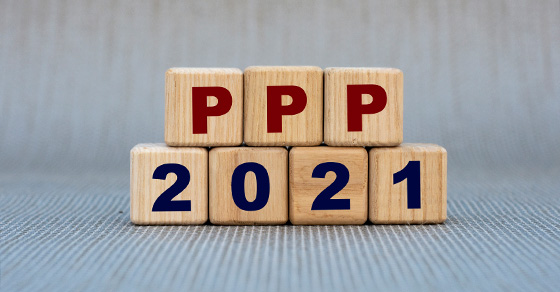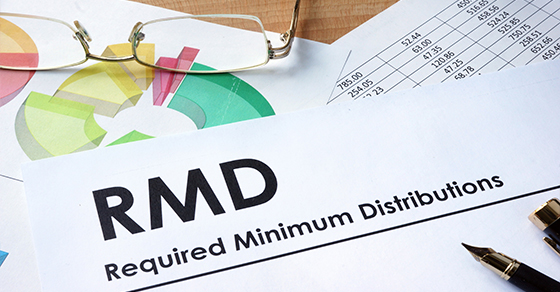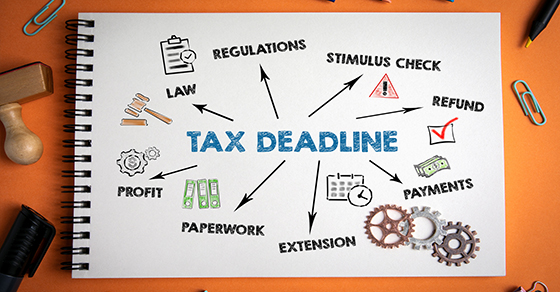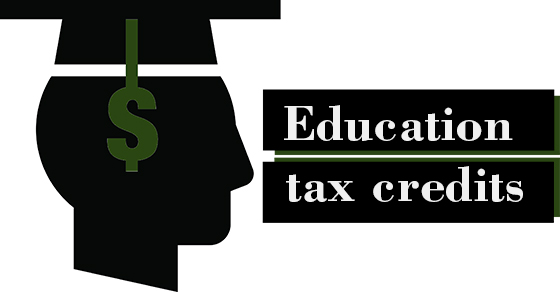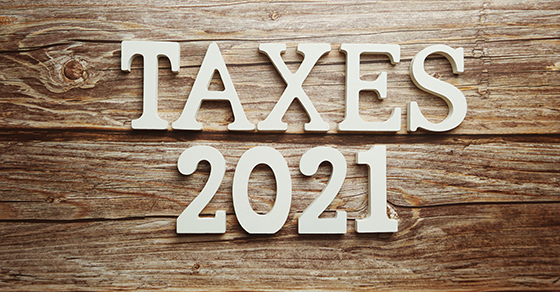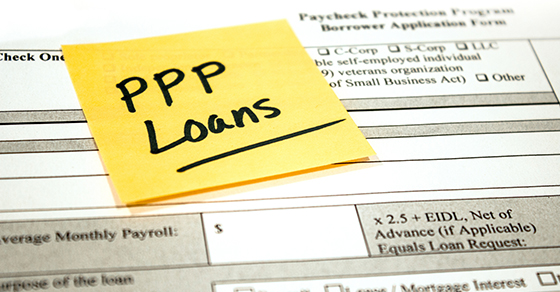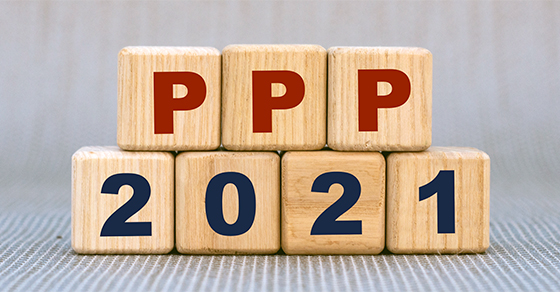IRS clarifies employee retention credit eligibility for PPP loans and 2020 claims
The IRS has released additional guidance in Notice 2021-20 on the Employee Retention Tax Credit (ERC) with clarifications on the retroactive changes for expanded eligibility applicable to 2020. Employers who received a Paycheck Protection Program (PPP) loan have been waiting on guidance on claiming the credit in combination with forgiveness of their loan. The provisions outlined here apply to retroactive claims for 2020 as well as providing a plan for those yet to seek forgiveness.
PPP adjusted to prioritize very small businesses
When the Small Business Administration (SBA) launched the Paycheck Protection Program (PPP) last year, the program’s stated objective was “to provide a direct incentive for small businesses to keep their workers on the payroll.” However, according to federal officials, the recently issued second round of funding has distributed only a small percentage of the $15 billion set aside for small businesses and low- to moderate-income “first-draw” borrowers.
PPP revisions target smallest businesses
The Biden administration has announced several reforms to the popular Paycheck Protection Program (PPP) to bring greater relief to the smallest and most vulnerable businesses. Among other things, the administration is imposing a two-week moratorium on loans to companies with 20 or more employees and focusing on smaller businesses. It’s also changing several program rules to expand eligibility for the 100% forgivable PPP loans.
The changing landscape of sales tax nexus
It has been almost two years since the United States Supreme Court ruled 5-4 in South Dakota vs. Wayfair that states can require the collection and remission of sales tax without physical presence nexus. If you and your business have not yet educated yourself on the new requirements, now is a good time to do so.
Surviving Adversity: A CEO Panel Discussion Part 3
In part one of Surviving Adversity: A CEO Panel Discussion, we highlighted the conversations around revenue strategy during the pandemic. In part two, we received how the panelists have adapted the way they manage their graphic arts business in light of COVID-19, including the impact to staffing and internal processes. In part three, we’re taking a look at some of the future predictions for the industry in light of COVID’s impact.
View your financial statements through the right lens
Many business owners generate financial statements, at least in part, because lenders and other stakeholders demand it. You’re likely also aware of how insightful properly prepared financial statements can be — especially when they follow Generally Accepted Accounting Principles. But how can you best extract these useful insights? One way is to view your financial statements through a wide variety of “lenses” provided by key performance indicators (KPIs). These are calculations or formulas into which you can plug numbers from your financial statements and get results that enable you to make better business decisions.
Don’t forget to take required minimum distributions this year
If you have a traditional IRA or tax-deferred retirement plan account, you probably know that you must take required minimum distributions (RMDs) when you reach a certain age — or you’ll be penalized. The CARES Act, which passed last March, allowed people to skip taking these withdrawals in 2020 but now that we’re in 2021, RMDs must be taken again.
One reason to file your 2020 tax return early
The IRS announced it is opening the 2020 individual income tax return filing season on February 12. (This is later than in past years because of a new law that was enacted late in December.) Even if you typically don’t file until much closer to the April 15 deadline (or you file for an extension), consider filing earlier this year. Why? You can potentially protect yourself from tax identity theft — and there may be other benefits, too.
Educate yourself about the revised tax benefits for higher education
Attending college is one of the biggest investments that parents and students ever make. If you or your child (or grandchild) attends (or plans to attend) an institution of higher learning, you may be eligible for tax breaks to help foot the bill. The Consolidated Appropriations Act, which was enacted recently, made some changes to the tax breaks. Here’s a rundown of what has changed.
2021 tax calendar
To help you make sure you don’t miss any important 2021 deadlines, we’ve provided this summary of when various tax-related forms, payments and other actions are due. Please review the calendar and let us know if you have any questions about the deadlines or would like assistance in meeting them.
Cost segregation: Valuable tax savings strategy
Cost segregation is a tax savings strategy that allows owners of commercial real estate to achieve significant cash flow savings by accelerating depreciation deductions and deferring federal and state tax obligations. This tool is extremely useful for entities that purchased, expanded, or remodeled real estate that is used in a trade or business.
What you need to know about PPP loan forgiveness
LB Carlson recently hosted a webinar that covered the most frequently asked questions and key considerations regarding the PPP loan forgiveness process. All PPP loan recipients will want to be aware of the general considerations regarding the forgiveness process and the recent changes to…
Employee Retention Tax Credit Expansion
The Consolidated Appropriations Act (CAA) was signed by President Trump on December 27, 2020. The expansion of the Payroll Protection Program (PPP) loans and tax-deductibility of expenses paid with the first PPP loan received the most fanfare. Also included in the CAA was the expansion of the Employee Retention Tax Credit (ERTC). If the eligibility requirements are met, businesses could be entitled to significant credit amounts. There are separate eligibility requirements for 2020 and 2021.
Deductibility of business meals provided by restaurants in 2021 and 2022
You’ve probably heard that the recent stimulus legislation included a provision that removes the 50% limit on deducting business meals provided by restaurants in 2021 and 2022 and makes those meals fully deductible. Here are the details.
Need another PPP loan for your small business? Here are the new rules
Congress recently passed, and President Trump signed, a new law providing additional relief for businesses and individuals during the COVID-19 pandemic. One item of interest for small business owners in the Consolidated Appropriations Act (CAA) is the opportunity to take out a second loan under the Paycheck Protection Program (PPP).




